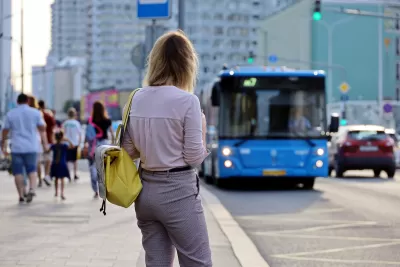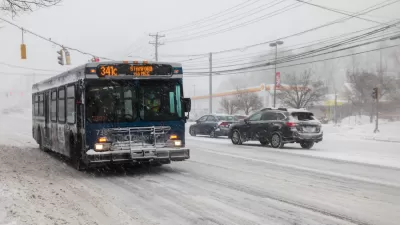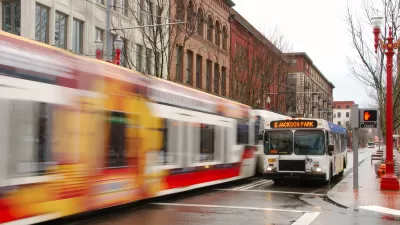Eliminating transit fares can have benefits that ripple across a local economy and improve livelihoods.

In a commentary in the Gazette Leader, Liam Crisan argues that free public transit has proven itself as an effective way to boost ridership, improve equity, and offer better mobility and connectivity.
In Albuquerque, ridership grew by 49.4 percent in the year following the city’s decision to make all its transit routes free. “Zero fares is a direct way to put cash in the pockets of those who need it most. Most of those who use ABQ RIDE are people of color, 74 percent are low-income and 73 percent don’t have access to a car.” Other cities with fare-free pilot programs include Richmond, Virginia, Kansas City, Missouri, and Olympia, Washington.
Eliminating transit fares can also save agencies money by eliminating fare collection mechanisms and enforcement costs and contribute to economic development. According to Crisan, “Every $1 invested generates $5 in economic returns. Better funding and more ridership means more jobs and increased commercial activity. By connecting people to medical, educational, professional, and community-building resources, affordable and accessible public transit changes lives.”
FULL STORY: Commentary: Free public transit would be a win-win solution

Maui's Vacation Rental Debate Turns Ugly
Verbal attacks, misinformation campaigns and fistfights plague a high-stakes debate to convert thousands of vacation rentals into long-term housing.

Planetizen Federal Action Tracker
A weekly monitor of how Trump’s orders and actions are impacting planners and planning in America.

In Urban Planning, AI Prompting Could be the New Design Thinking
Creativity has long been key to great urban design. What if we see AI as our new creative partner?

King County Supportive Housing Program Offers Hope for Unhoused Residents
The county is taking a ‘Housing First’ approach that prioritizes getting people into housing, then offering wraparound supportive services.

Researchers Use AI to Get Clearer Picture of US Housing
Analysts are using artificial intelligence to supercharge their research by allowing them to comb through data faster. Though these AI tools can be error prone, they save time and housing researchers are optimistic about the future.

Making Shared Micromobility More Inclusive
Cities and shared mobility system operators can do more to include people with disabilities in planning and operations, per a new report.
Urban Design for Planners 1: Software Tools
This six-course series explores essential urban design concepts using open source software and equips planners with the tools they need to participate fully in the urban design process.
Planning for Universal Design
Learn the tools for implementing Universal Design in planning regulations.
planning NEXT
Appalachian Highlands Housing Partners
Mpact (founded as Rail~Volution)
City of Camden Redevelopment Agency
City of Astoria
City of Portland
City of Laramie





























